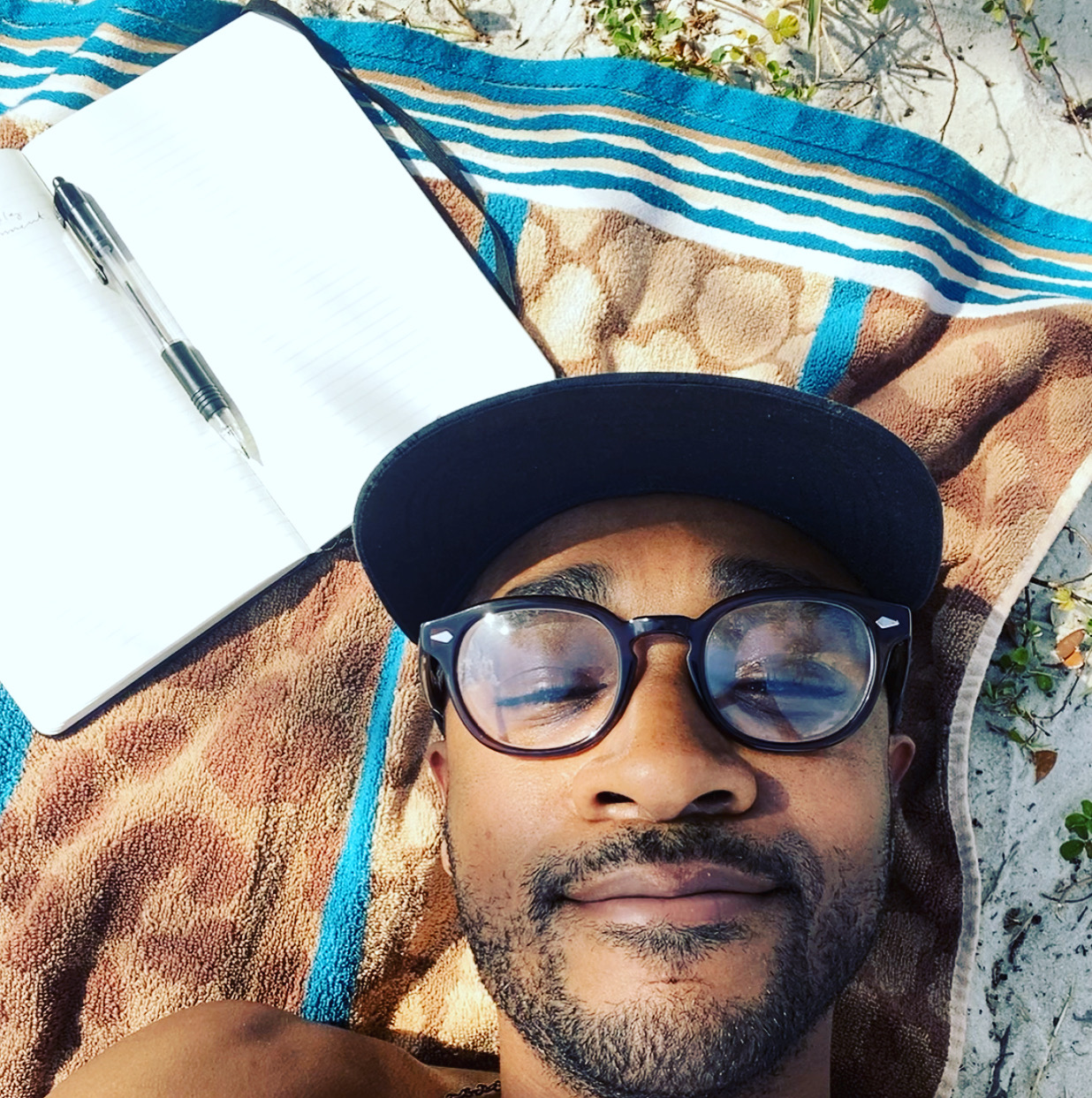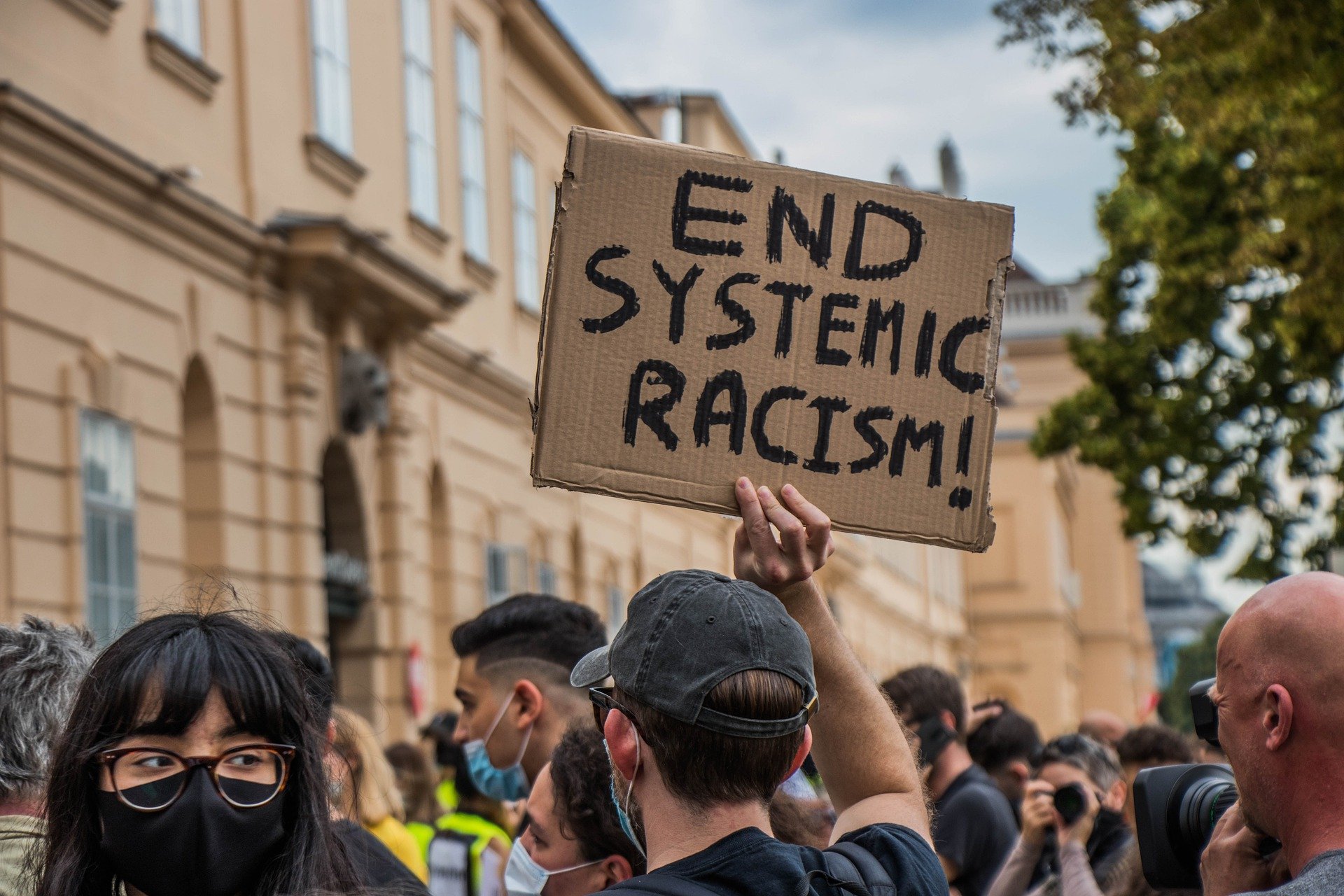As we arise from our collective grief over the loss of Black lives in America, the term “allyship” is increasing in use.
Terms like this mean something specific and powerful to the passionate few that popularize them. They become an example of malarkey in the hands of pundits, carpetbaggers, and value-washers who wield them with the intent to appease.
Allyship is about acknowledging deep systemic and generational racism
Amélie Lamont, in her open-source repository on the topic “The Guide to Allyship,” describes allyship as,
“groups of white people in power, leading by example, sacrificing ego, trusting the diverse voices around them, and not wavering from their position for financial gain”.
Allyship is about acknowledging deep systemic and generational racism, as well as a direct and indirect role in supporting it. No matter how difficult and confronting that might be. Then, making a totalitarian choice to stand as an ally in battling racism, wherever you see it.
That’s a tough pill to swallow. Even for me, as a Black man with some privilege. It means standing up for what’s right even if it means disruption to the harmony and acceptance we all crave.
This isn’t just a problem for Black people
I choose to take a proactive stance, partially because I don’t have a choice about whether this affects me or not.
While my immigrant parents were able to turn Jamaican High School educations into a comfortable lower-middle-class upbringing for me and my brothers, we as a family run a likely risk of regressing from that economic position.
In the recent McKinsey study from 2019 entitled “The economic impact of closing the racial wealth gap”, researchers state that 70 percent of middle-class black children are likely to fall out of the middle class as adults. The results of a lack of economic education and mentorship, socioeconomic constraints, and discrimination in the United States.
This isn’t just a problem for Black people and those who empathize. This is a national economic problem, and opportunity. The study goes on to state:
“Other than its obvious negative impact on human development for black individuals and communities, the racial wealth gap also constrains the US economy as a whole. It is estimated that its dampening effect on consumption and investment will cost the US economy between $1 trillion and $1.5 trillion between 2019 and 2028—4 to 6 percent of the projected GDP in 2028”
This is a real and tangible number that we can affect in most of our lifetime. Allyship is about banding together to do the work necessary to correct inequities. To act on our individual and nation’s values with integrity. And to pursue economic growth for us all.
Perhaps the biggest hurdle is an emotional one
And while there are clear moral and economic reasons for allyship, perhaps the biggest hurdle is an emotional one.
Saying you’re an ally is much easier than actually being an ally. For a white or non-black person of color to be an ally, it requires admitting being a part of this racist system without caveats and deflections.
According to Presley Pizzo in The Guide to Allyship,
“Allies recognize that though they are not a member of the oppressed group(s) they support, they make a concerted effort to better understand the struggle, every single day.”
Robin DiAngelo’s White Fragility documents the reasons white people have a difficult time confronting their ego and guilt, as well as recognizing their role in the racist system and how they benefit from it.
Even liberal white people have a hard time acknowledging privilege.
While many on the opposing extreme of this topic might advocate for “All Lives Matter” over “Black Lives Matter”. Others who are sympathetic might tout complimentary diversity stats or recent emotional video campaigns, while glossing over inconsistencies in their own practices, thoughts, or inactions that perpetuate inequities.
Major national brands like the NFL, who issued a statement of solidarity with Black people while neglecting to acknowledge the blackballing of former star-quarterback Colin Kaepernick, are receiving backlash for not going far enough.
While we wait to see results from the pledges from brands like Apple and PayPal, that have committed millions of dollars and promises of changes to organizational practices, in an effort to balance the opportunity scales.
In that regard, allyship is a bit messy. How much is too much? Is there such a thing as too small of an effort to matter? Are my attempts at helping, going to inadvertently make things worse?
“The ecosystem isn’t committed.”
Experts across brand, advertising, and media are rising to take these questions on. In a recent Fast Company article, entertainment and advertising heavyweight Steve Stout pulls no punches.
“On one hand there are hiring initiatives and diversity strategies, while on the other you still have work that reinforces stereotypes and clichés, as well as a lack of diversity in leadership.
The brands aren’t committed. The agencies aren’t committed. And thus the ecosystem isn’t committed.
You’re talking about a systemic problem that starts in neighborhoods, and in education. You’re talking about bias. I’ve come to the conclusion, unfortunately, that white people think bias and racism are two different things. Racism is the dark word. But bias actually has the same ingredients.”
In an Inc Magazine interview, brand marketing thought-leader and investor, Bonin Bough inquires about what happens after Black Lives Matter stops trending in social media.
“I don’t fault people for wanting to be a part of the movement. People tried their best. And now I think the conversation has progressed. I don’t think it’s about black squares or saying, hey, I support you. It’s, what are the plans we’re going to put in place to bring about change?”
“We hurt because we have seen this movie before.”
Meanwhile, as civil protest turns from the sidewalks outside City Hall to boardrooms across the country, 600 Black advertising & media professionals banned together to make their opinions heard by penning an open letter to the advertising industry demanding meaningful action.
The letter which includes a 12 point action plan states,
“We hurt because we have seen this movie before. We hurt because we expect that, once again, when the streets have cleared and the hashtags have been retired, little will be done to address the systemic racism and economic injustice we face each and every day.”
Creative professionals have taken it upon themselves to mobilize the second wave of allyship for Black lives and underrepresented groups in advertising.
Independent agency Palette Group & the Avail List have organized a free virtual summit for Thursday, June 18th called Allyship & Action Summit. The summit features leaders from Microsoft, TBWA, We are Rosie, David&Goliath and Saturday Morning, and will cover subjects such as “turning white leaders into allies”, “stories of good and bad allyship”, and “unpacking beliefs about race”.
How I wish to lead
In a bittersweet occurrence, the brutality against Black people in our country brought one of my projects attention as a “Black-owned business worth supporting”.
This unexpected recognition, including a feature by Thrive Global’s Marina Khidekel, in her recent article “Navigating Difficult Conversations About Race and Injustice”, has placed me on the frontlines of allyship for racial equity.
In 2018, leading into the contentious midterm elections, my firm Curiosity Lab created a card game and tool to help fight divisiveness in this country, called Actually Curious.
The project taps into years of bridging gaps between disparate yet similarly interested entities to form partnerships. It also leverages expert consultation and deep research on the science and psychology of trust-building.
The game is now in close to 100 independent boutiques and is being used to help difficult discussions. We partner with individuals, organizations, and businesses to facilitate workshops that leverage play to teach the tools for having sometimes triggering, but necessary conversations.
As we field increased inquiries for partnerships from individuals and brands looking to encourage important conversations in their communities, it has forced us to take a step back and evaluate how we wish to lead in this pivotal moment.
Contribute without adding to the problem
As the representative of a small brand and as an individual, I face a similar fundamental challenge that any individual or large company wishing to help would face. How to contribute to the solution with integrity without adding to the problem?
To tackle that question, I did what I tell good friends and clients. I did my homework (which I have now shared with you). I looked through the lens of my values and mission. And I developed a list of commitments that feel authentic to me and my business.
So I close with those commitments, to myself and my community. Will you join us in this struggle as an ally, even when it’s difficult?
A Pledge to Allyship: We Continue The Fight No Matter What
- I pledge to honor myself, as a black man who’s experienced significant trauma, while I strive for patience and consistency as I bridge gaps between people.
- I pledge to recognize my privileges with gratitude and use it to motivate my continued struggle for those less fortunate than me.
- I pledge to honor my relationships with the humans we serve, the individuals, partners, and allies who support us. I will never trade them callously for personal gain.
- I pledge to remain curious, never knowing it all. Seeing differences in values, beliefs, and practice as an opportunity for learning rather than a threat.
- I pledge to lead by example, acknowledging my biases, and being willing to confront others when they perpetuate prejudice.
- I pledge to pay it forward, using any incremental progress I’ve made to inspire through mentorship, storytelling, and action.
- I pledge to always recruit and maintain a diverse workforce across all levels of staffing. Particular in leadership positions.
- I pledge to contribute my funds, even before profitability, to causes that are much bigger than me or my company.
- I pledge to invest profits, intellectual and sweat capital in communities of color, and with organizations that benefit the underserved.
- I pledge to build community, using my talents to forge partnerships, and mobilize ideas across creatives, academia, thought leaders & influencers, and businesses.
- I pledge to amplify the voices of the struggle and refrain from words that undermine rather than uplift.
- I pledge to fight until there is no longer a need for radical change in how we show empathy and how we create opportunities for all races, genders, disabilities, and education levels.
The change we all want to see will take a committed effort from all of us to have an opportunity of succeeding.
If you wish to join our mission to spread empathy and understanding, you can follow us on Instagram or message me on LinkedIn.
The authentic way for you to engage in allyship is out there, it’s up to you to take the next step to find it.


